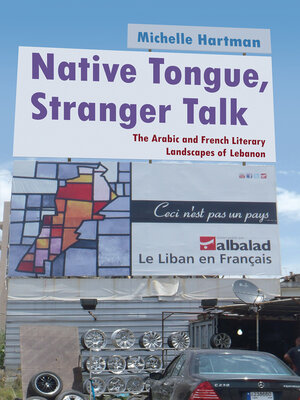Native Tongue, Stranger Talk
ebook ∣ The Arabic and French Literary Landscapes of Lebanon · Middle East Studies Beyond Dominant Paradigms
By Michelle Hartman

Sign up to save your library
With an OverDrive account, you can save your favorite libraries for at-a-glance information about availability. Find out more about OverDrive accounts.
Find this title in Libby, the library reading app by OverDrive.



Search for a digital library with this title
Title found at these libraries:
| Library Name | Distance |
|---|---|
| Loading... |
Can a reality lived in Arabic be expressed in French? Can a French-language
literary work speak Arabic? In Native Tongue, Stranger Talk Hartman
shows how Lebanese women authors use spoken Arabic to disrupt literary
French, with sometimes surprising results. Challenging the common claim
that these writers express a Francophile or "colonized" consciousness, this
book demonstrates how Lebanese women writers actively question the political
and cultural meaning of writing in French in Lebanon. Hartman argues
that their innovative language inscribes messages about society into their
novels by disrupting class-status hierarchies, narrow ethno-religious identities,
and rigid gender roles. Because the languages of these texts reflect the
crucial issues of their times, Native Tongue, Stranger Talk guides the reader
through three key periods of Lebanese history: the French Mandate and
Early Independence, the Civil War, and the postwar period. Three novels
are discussed in each time period, exposing the contours of how the authors
"write Arabic in French" to invent new literary languages.







